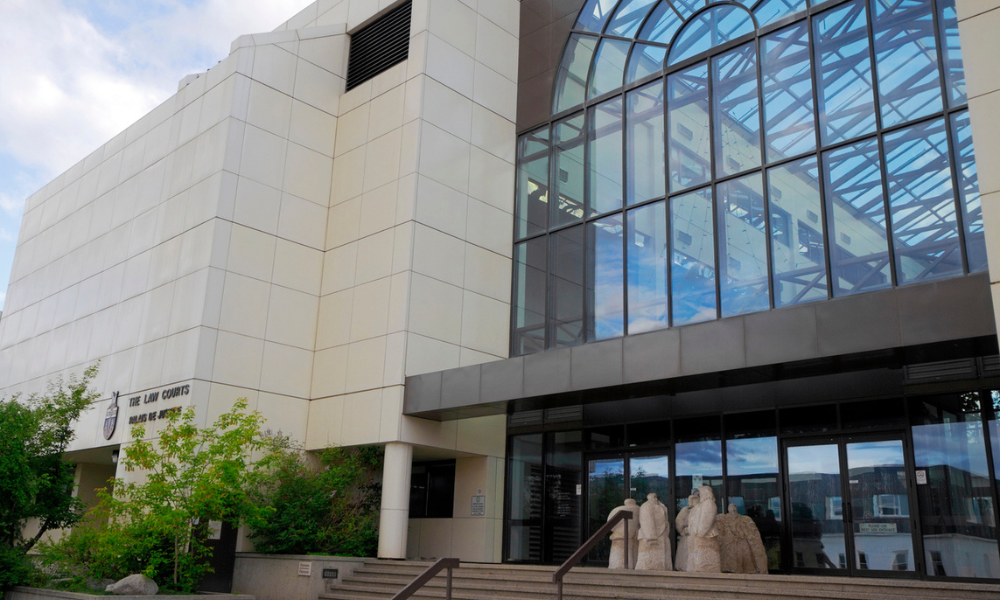
Legal regulator in territory cites concentration of services in Whitehorse as cause of inequities

Yukon residents face many barriers to accessing legal services, with lawyers in the territory saying internet connectivity issues, physical distance, understaffed courts, and high caseloads often prevent them from providing adequate representation for individuals outside the region’s capital city.
That’s according to a new report published this summer by a Law Society of Yukon committee. The report aimed to provide an overview of Yukon residents’ access to legal services.
It cited a wide range of sources, including national statistics; data from Yukon courts and local legal organizations; surveys of legal aid lawyers, private practice lawyers, and court workers; and conversations with residents based outside of Whitehorse, including representatives from non-profit organizations, Yukon First Nations chiefs and councils, local governments, municipal councils, and Council of Yukon First Nations.
Members of the LSY also met with employees in Whitehorse and outside the city who worked in the Department of Justice and Department of Health and Social Services.
The committee’s findings supported the conclusion “that people living throughout the territory do not have sufficient access to lawyers,” the report said, adding, “few lawyers and legal services are consistently available in any community outside of Whitehorse.”
“The lack of legal resources suggests inequities in accessing lawyers across communities,” the report said.
Paul Di Libero, a lawyer with Yukon Family Law who chairs the Access to Justice committee that compiled the report, said the report has been circulated among the bar, ministers, the Yukon Department of Justice, and local judges.
“The system that we have now… really does depend on the active involvement of legal counsel to make sure that people understand their rights and obligations,” Di Libero told Canadian Lawyer. But Yukon is facing two major obstacles, Di Libero says: the territory both needs more lawyers and more legal aid funding to make sure residents can access services.
Unlike Whitehorse, communities in other parts of the Yukon rely on a so-called circuit court system: a travelling court that hears criminal, regulatory, and child protection matters. The circuit court typically only holds court sittings every two months, spanning periods of one to three days, the report said. Civil matters are primarily heard in Whitehorse.
The infrequency of circuit court sittings means that matters before that court often see substantial delays, the report said. Many people living outside of Whitehorse also have trouble getting access to legal services in the first place because they cannot afford representation, encounter conflicts of interest, or do not know how to find a lawyer.
As of 2022, only two out of 176 lawyers based in the Yukon lived in a community outside of Whitehorse, the report said.
Meanwhile, 67.7 percent of the private practice lawyers surveyed by the LSY committee said they faced challenges working with clients outside of Whitehorse. These issues involved meeting in person, signing documents, and processing financial transactions.
Legal aid lawyers cited physical distance and logistics as major issues when working with clients outside the city. They also pointed to limited client access to telephones and videoconferencing technologies and an absence of private spaces to meet confidentially.
The obstacles to accessing legal services may cause residents to attempt handling legal matters themselves. The report cited data from the Yukon law courts, which showed an increase in the percentage of self-represented litigants before the Territorial Court of Yukon and the provincial Supreme Court. This increase does not apply to small claims, however, where the percentage of self-represented litigants has fallen.
The report concluded with a series of proposals for the YLS, including raising income thresholds for legal aid so that more residents qualify for funding, improving access to free legal educational resources, and investigating why lawyers are leaving private practice in the territory.
Di Libero said the access to justice committee has started working on projects to address some of the issues identified in the report. These include investigating how to expand the circuit court's availability and launching a pilot project to create spaces for residents to meet confidentially with lawyers. The committee is also working on a recruitment project to attract young lawyers to the region.
“We really are trying to focus on solutions, on getting lawyers out to the community and having a better link between the communities and Whitehorse and the lawyers here,” he says.